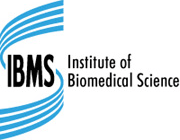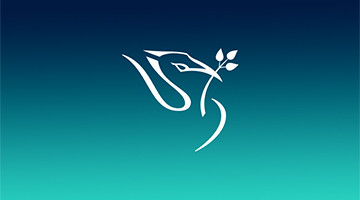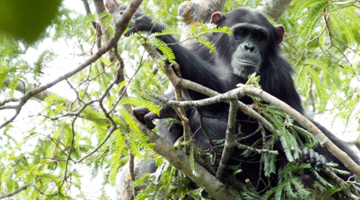Why study this course with LJMU?
- Accredited by the Institute of Biomedical Science
- 95% of students surveyed said the teaching staff were good at explaining things (NSS 2024)
- Opportunity to undertake a years work placement
- You may apply to study on the Applied Biomedical Science programme (which is approved by the Health and Care Professions Council) with regular NHS laboratory practice
- Links with local organisations, such as the Roy Castle Foundation Laboratories for research into lung cancer, Transplant Immunology at the University of Liverpool, many local NHS departments, including those at Alder Hey Children's Hospital, Whiston Hospital and the Liverpool Women's Hospital, plus companies such as Mast Diagnostics and Eden Bioscience
- Lively department with excellent teaching and active research
- International Foundation Year course available offering direct progression onto this degree programme - visit LJMU's International Study Centre to find out more
About your course
BSc (Hons) Biomedical Science is professionally accredited by the Institute of Biomedical Science and offers you exciting placement opportunities with our industry partners. The development of advanced laboratory skills are integral to this fascinating degree, which covers the broad areas of human bioscience and diagnostic science.
As a Biomedical Science student, you will cover the broad areas of human bioscience and diagnostic science, including medical microbiology, immunology, histology, haematology, medical genetics and cancer alongside basic sciences such as biochemistry, physiology, molecular and cell biology. Laboratory work is an important part of this course, giving you the high-level skills and understanding required of a biomedical scientist by the time you graduate.
You may consider taking the more practical applied biomedical sciences route. Acceptance onto this route is by competitive application. If successful, you will spend about 1,000 hours over three years working in a local NHS laboratory and gaining academic credit for your work-based study.
This will take the form of long summer blocks in a relevant laboratory with further attendance during your final year of study. If you decide not to take this option we encourage you to undertake a years work placement or a shorter placement between your second and third years to gain experience.
One of the advantages of being accredited by the Institute of Biomedical Sciences is that you can join the Institute as an eStudent and have access to their resources to help with your course and career development. They also award a prize to the best biomedical science graduate and to other students who have shown particular promise.
Course modules
What you will study on this degree
Further guidance on modules
Modules are designated core or optional in accordance with professional body requirements, as applicable, and LJMU’s Academic Framework Regulations. Whilst you are required to study core modules, optional modules provide you with an element of choice. Their availability may vary and will be subject to meeting minimum student numbers.
Where changes to modules are necessary these will be communicated as appropriate.
Core modules
Cell Biology
20 credits
20 credits
The aim of this module is to provide a fundamental introduction to cellular biology and the manner in which the functions of individual cells contribute to the overall function of a tissue in health and disease.
Principles of Biochemistry
20 credits
20 credits
The aim of this module is to provide an education in the fundamental biochemical processes which occur in the cell. This will be underpinned by a thorough introduction into the relevant molecular biology of DNA, proteins and lipids.
Microbiology
20 credits
20 credits
This module aims to provide a broad spectrum of knowledge about microorganisms and their activities, which will provide a foundation for microbiology-related modules at levels 5 and 6.
Fundamentals of Biomedical Science
20 credits
20 credits
In this module you will be taught the core skills and ethos which are central to the field of Biomedical Science.
Anatomy and Physiology
20 credits
20 credits
This module will introduce you to both the structural organisation of the human body and how it is controlled.
Genetics and molecular biology
20 credits
20 credits
This module will teach the essentials of genetics and molecular biology to allow the beginning of growth in understanding in these areas.
Core modules
Biomedical Research Methods
20 credits
20 credits
The aim of this module is to equip you with essential research skills and knowledge of methods and techniques that are routinely applied in biomedical research.
Clinical Biochemistry
20 credits
20 credits
This module will provide an introduction into how biochemical markers can investigate the function and dysfunction of systems, organs and tissues and how this is applied to the diagnosis and treatment of disease.
Cellular pathology
20 credits
20 credits
This module will provide an in-depth education into disease at the molecular level with particular emphasis on the preparation and observation of samples from organs, such as the liver, lung and the kidney in both normal and diseased states.
Immunology and medical microbiology
20 credits
20 credits
This module provides an introduction to the theoretical and practical concepts of medical microbiology and immunology. It will also provide an understanding of the principles and practices involved in the laboratory diagnosis, prevention and treatment of infectious diseases in humans.
Haematology and Transfusion Science
20 credits
20 credits
In this module you will get an in-depth introduction to the basic structure and composition of the blood and the diseases that affect the circulatory system and how such diseases can be detected.
Advanced cell and molecular biology
20 credits
20 credits
Building on the knowledge and skills gained at level 4, this module will provide an in-depth education into cellular and molecular biology.
Optional Modules
Sandwich Year - Biomedical Science
120 credits
120 credits
The aim is to provide students with an extended period of work experience at an approved partner that will complement their programme of study at LJMU. This will give students the opportunity to develop professional skills relevant to their programme of study as well as the attitude and behaviours necessary for employment in a diverse and changing environment. This extended placement forms a key part of a sandwich degree. All placements need to be assessed and approved prior to commencement in line with the LJMU Placement Learning Code of Practice. The Code of Practice requires students to conduct themselves in a professional and responsible manner during the placement - failure to do so may lead to the placement being terminated prematurely. Placements are normally for one calendar year on a full-time basis. Split placements of a shorter duration may be permissible. There is an expectation that a minimum of 1200 hours will be spent in the workplace.
Study Year Abroad - Biomedical Science
120 credits
120 credits
The aim is to provide students with an additional year of study at an approved overseas partner that will complement their programme at LJMU. This is an additional year of full-time study at an approved higher education institution. The modules to be studied must be agreed in advance, and must be appropriate for the student's programme of study. Assuming successful completion of this year, mark-bearing credit will be awarded by the Faculty Recognition Group. The grade conversion scale to be used will be made available in advance of the year abroad.
Core modules
Cancer
20 credits
20 credits
This module aims to enable students to develop an understanding of the underpinnings of key molecular and cellular events during the initiation and progression of cancer and to provide an appreciation of the diagnostic techniques and therapies available. The module also aims to consolidate your prior learning in genetics, histology, cell biology, molecular biology, chemistry, and biochemistry within a disease model.
Medical and clinical genetics
20 credits
20 credits
This module focuses on the increasingly important topic of medical and clinical genetics and will use real world examples and data analysis techniques used in the field.
Clinical immunology and medical microbiology
20 credits
20 credits
In this module, your education continues in the field of immunology and microbiology as we now focus the knowledge gained at level 4 and 5 onto the clinical aspects of disease.
Integrated Biomedical Science
20 credits
20 credits
The Integrated Biomedical Science module allows you to understand, integrate and analyse the contribution of different lab and non-lab specialities in the investigation of disease and patient pathways.
Biomedical Science Honours Project
40 credits
40 credits
The research project module will allow you to work closely with one of our academics in the conduction of a research project on a topic relevant to Biomedical Science.
Professional accreditation/links
This course is accredited by the Institute of Biomedical Science. You may apply to study on the Applied Biomedical Science programme (which is approved by the Health and Care Professions Council) with regular NHS laboratory practice.
Our links with local hospitals, public health and private laboratories ensure that course content is informed by the latest research and developments in todays biomedical science industry and tailored to the needs of employers. Our connections include the Walton Centre of Excellence in Neurology and Neurosciences, the Roy Castle Foundation Laboratories for research into lung cancer, Alder Hey Children's Hospital and Glaxo/Wellcome Laboratories.

Your Learning Experience
Excellent facilities and learning resources
We adopt an active blended learning approach, meaning you will experience a combination of face-to-face and online learning during your time at LJMU. This enables you to experience a rich and diverse learning experience and engage fully with your studies. Our approach ensures that you can easily access support from your personal tutor, either by meeting them on-campus or via a video call to suit your needs.
The number of formal teaching hours varies from module to module. On average you will spend 12-15 hours in lectures, seminars, workshops, lab sessions, tutorials, and online each week. In your final year you will spend approximately half of your time on an independent research project.
If you take the applied biomedical science route, some of your time will be spent in supervised laboratory work with your employer, supported by one-to-one tutorials and small group meetings with your clinical placement facilitator at the university.
Work-related Learning
This course is highly vocational with a strong element of work-related learning. For those students who are successful in their application to take the applied biomedical science route, over the three years of your degree, this provides an opportunity to find out what its really like to work in an NHS lab. Alternatively the sandwich option provides a years work experience in industry, and there are opportunities for shorter periods of work experience. For those students who do not take a work experience placement, the course provides many opportunities to develop relevant skills. Whichever route you take, you will gain invaluable hands-on experience, practising skills you have learnt during the course and boosting your employability, giving you a head start when you eventually enter the competitive graduate job market.
Dedicated personal tutor, plus study skills support
Being able to discuss course-related issues, particularly in your first year, is crucial and for this reason you will receive different kinds of support for specific aspects of your course. A personal tutor will provide continuous support for the duration of your time at LJMU, meeting you regularly in Levels 4 and 5 and setting up one-to-one progress review meetings to monitor and help improve your work.
In the time leading up to and during your placement, you will be allocated a tutor who will visit you in your workplace. If you go down the Applied Biomedical Science route, this role will be covered by a Clinical Placement Facilitator. Finally, once you reach your final year, a supervisor will guide you through your research project.
The school is fully committed to promoting a learning environment that supports a culture of equality, diversity and inclusivity (EDI) and has a Disability Support Coordinator, an EDI Coordinator and a School EDI Working Group. Personal Tutors also play a vital role in promoting awareness of support services for students.
Assessment varies depending on the modules you choose, but will usually include a combination of exams and coursework.
Assessment methods vary depending on the modules you take, but are mostly a combination of exams and coursework, though some are via coursework only. Exams may be multiple choice, short answer, interpretative, problem-based learning or essay-based. Some modules assess practical competence. Applied Biomedical Science students complete a portfolio demonstrating competence to practice.
Coursework assessments may include phase tests, practical reports, data handling, oral presentations, poster presentations, group discussions, essays, portfolios or the evaluation of your practical skills and most are based on individual assignments. Feedback is normally provided within three weeks of submitting coursework and may be via Canvas (our virtual learning environment), face-to-face or in writing. We believe that constructive feedback is vital in helping you identify your strengths as well as the areas where you may need to put in more work.
Where you will study
You will study at the Byrom Street site in the university's City Campus in the heart of Liverpool. Our state-of-the-art laboratories and teaching spaces will ensure you enjoy a first-class study environment. The Avril Robarts library is within easy walking distance and here you'll find all the information you need to support your studies.


While academically challenging, this course provided me with the broad range of skills required to succeed in the highly competitive scientific job market. First class teaching, first class employability, and a first class student experience.
Career paths
You will enjoy varied career opportunities both in the UK and overseas with this BSc in Biomedical Science.
Approximately one third of our graduates decide to pursue careers in NHS and public health laboratory services, providing diagnostic, prognostic, monitoring and other support for patients. Others enter the pharmaceutical industry to work in research and drug development or other laboratory-based careers. Clinical trials fieldwork is also becoming increasingly popular, as is sales and marketing for diagnostic and therapeutic products.
Graduates have entered the Health and Safety Executive, medical records and similar occupations. Some students also opt to do further qualifications, such as postgraduate medicine, teaching, specialised MSc programmes or research qualifications
Student Futures - Careers, Employability and Enterprise Service
A wide range of opportunities and support is available to you, within and beyond your course, to ensure our students experience a transformation in their career trajectory. Every undergraduate curriculum includes Future Focus during Level 4, an e-learning resource and workshop designed to help you to develop your talents, passion and purpose.
Every student has access to Careers Zone 24/7, LJMU's suite of online Apps, resources and jobs board via the LJMU Student Futures website.
Tuition fees and funding
- Full-time per year:
- £9,535
- Placement year:
- £1,905
The University reserves the right to increase tuition fees in accordance with any changes to the maximum allowable fees set by the UK Parliament. In the event of such a change, any fee increase will be subject to a maximum cap of 10% of the total course cost as originally stated at the time of your offer.
The fees quoted above cover registration, tuition, supervision, assessment and examinations as well as:
- library membership with access to printed, multimedia and digital resources
- access to programme-appropriate software
- library and student IT support
- free on-campus wifi via eduroam
Additional costs
Although not all of the following are compulsory/relevant, you should keep in mind the costs of:
- accommodation and living expenditure
- books (should you wish to have your own copies)
- printing, photocopying and stationery
- PC/laptop (should you prefer to purchase your own for independent study and online learning activities)
- mobile phone/tablet (to access online services)
- field trips (travel and activity costs)
- placements (travel expenses and living costs)
- student visas (international students only)
- study abroad opportunities (travel costs, accommodation, visas and immunisations)
- academic conferences (travel costs)
- professional-body membership
- graduation (gown hire etc)
Funding
There are many ways to fund study for home and international students. From loans to International Scholarships and subject-specific funding, you'll find all of the information you need on our specialist funding pages.
- Full-time per year:
- £18,250
- Placement year:
- £3,830
International Scholarships and payment plans
Liverpool John Moores University is committed to supporting international students by providing a range of scholarships and flexible payment plans to help students manage their tuition fees.
Scholarships
LJMU provides a variety of scholarships to support international students. Scholarships are available to self-funded students who have accepted their offer and met all the conditions outlined in their offer letter. Students must also demonstrate that they can cover living costs, travel, and other expenses associated to studying at the university. Postgraduate scholarships include tuition fee reductions and are often offered in partnership with external funding organisations.
All self-funded international students are eligible for an automatic scholarship worth up to £4,000. For more details and to view our full list of scholarships, visit the international scholarship webpages.
Deposit
All students must pay a £5,000 deposit before they can receive their CAS letter.
For more information view our deposit page.
Tuition Fee Payment Plan
After paying their £5,000 deposit, students have the option to pay their fees in full or in three equal instalments minus any internal scholarships and discounts. There are two payment options available for international students. You can either pay your tuition fees in full before enrolment or opt for a payment plan. With the payment plan, you can pay your fees in three instalments after making your £5,000 deposit. The first instalment is due before enrolment.
All payments should be made through Flywire. Full details can be found in the How to Pay Guide.
Early Bird Tuition Fee discount
We are excited to introduce a £500 Early Payment Discount to all self-funded international students. Eligible self-funded students who pay their fees by the required deadlines will get a discount which will be automatically deducted from the 1st year of tuition fees.
To see the required deadlines please visit the webpage
A DBS check is not required for your application, however a DBS may be required for modules where there is a work based learning placement option. Work based learning placements that do not require a DBS check are available. This does not apply to the Applied Biomedical Science route.
Entry requirements
Please choose your qualifications below to view requirements
Grades/points required from qualifications: BBC-ABB (112-128)
Work out how many UCAS points your qualifications are worth by visiting the UCAS Tariff Calculator.
Qualification requirements
GCSEs and equivalents
Grade 4 or grade C or above in English Language and Mathematics/ Numeracy.
GCSE Equivalences accepted:
• Key Skills Level 2 in English/Maths
• NVQ Level 2 Functional skills in Maths and English Writing and or Reading
• Skills for Life Level 2 in Numeracy/English
• Higher Diploma in Maths/English
• Northern Ireland Essential Skills Level 2 in Communication or Application of Number
• Wales Essential Skills Level 2 in Communication or Application of Number
A levels
BBC-ABB
Minimum Number of A Levels: 2
Maximum AS UCAS Points: 20
Must include Chemistry and/or Biology or relevant science
BTECs
Extended Diploma: DMM-DDM
Access awards
Acceptable on its own and combined with other qualifications
Pass overall with a minimum of 112 points
International Baccalaureate
Acceptable on its own and combined with other qualifications. Must include a relevant subject at Higher Level
OCR Cambridge Technical
Extended Diploma: DMM-DDM
Irish awards
Acceptable on its own and combined with other qualifications From a relevant subject
T levels
Acceptable on its own and combined with other qualifications.
You need to obtain the required UCAS points from a related subject area.
International requirements
IELTS
Acceptable on its own and combined with other qualifications From a relevant subject
IELTS
6.0 overall with no component below 5.5, taken within two years of the course start date.
https://www.ljmu.ac.uk/study/courses/international-entry-requirements
Please Note: All international qualifications are subject to a qualification equivalency check.
How to apply
Securing your place at LJMU
UCAS is the official application route for our full-time undergraduate courses. Further information on the UCAS application process can be found here https://www.ljmu.ac.uk/study/undergraduate-students/how-to-apply.
Your university life
From accommodation and academic support to clubs and societies. Find out what LJMU has to offer.
Related Links
Talk to our students
Connect with a current LJMU student for advice and guidance on university life, courses and more.
See what our students are saying
At LJMU we want you to know you're making the right choice by studying with us. You can see what our students are saying about their experience with us through their reviews on the following websites:
Related Links
News and views
Browse through the latest news and stories from the university







The university reserves the right to withdraw or make alterations to a course and facilities if necessary; this may be because such changes are deemed to be beneficial to students, are minor in nature and unlikely to impact negatively upon students or become necessary due to circumstances beyond the control of the university. Where this does happen, the university operates a policy of consultation, advice and support to all enrolled students affected by the proposed change to their course or module.
Further information on the terms and conditions of any offer made, our admissions policy and the complaints and appeals process.

















